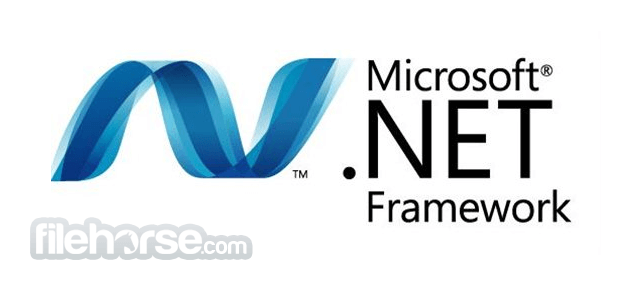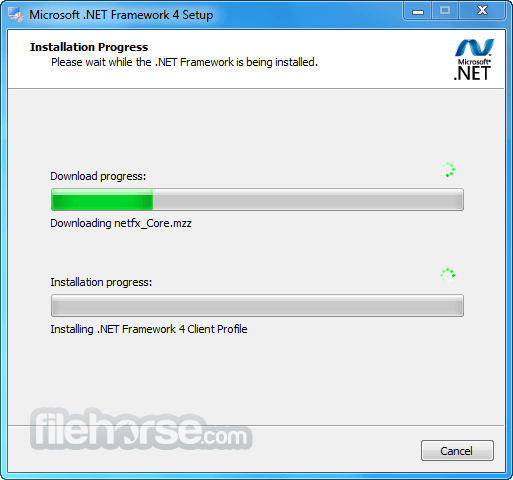-
Latest Version
.NET Framework 1.1 SP1 LATEST
-
Review by
-
Operating System
Windows XP / XP64 / Vista / Vista64 / Windows 7 / Windows 7 64
-
User Rating
Click to vote -
Author / Product
-
Filename
dotnetfx.exe
-
MD5 Checksum
22e38a8a7d90c088064a0bbc882a69e5
The first version of .NET Framework was released to the public in February of 2002 for Windows 98, ME, NT 4.0, 2000, and Windows XP, but its first and most important update 1.1 arrived little more than 1 year later in April of 2003. This update packaged the entire framework into a Software Developer Kit package that could not only be downloaded individually from the internet to be used in cooperation with the Visual Studio .NET 2003 but also came as an integral part of the Windows Server 2003.
Version 1.1 enabled developers from all around the world to have great environment for creation, management, optimizing and deployment of Windows applications, and the new additions such as IPv6 support, security changes, built-in support for mobile ASP.NET controls and .NET Compact Framework all provided much more streamlined environment for managing projects of all sizes from simple mobile apps to large business projects.
Some of its key features are:
- ASP.NET Mobile Controls
- Side-by-side execution – multiple versions of the same component can be executed on a single computer
- Enhanced security
- IP version 6 (IPv6) support
Mature and Stable: It has been around for a long time, which means it's stable and well-tested. Many enterprise applications have been built on this platform, and it has a strong track record for reliability.
Comprehensive Class Library: The .NET Framework includes a vast class library (the Base Class Library or BCL) that provides pre-built code for a wide range of tasks, such as file I/O, database access, and user interface development. This reduces the amount of code you need to write from scratch.
Integrated Development Environment (IDE): Visual Studio, Microsoft's integrated development environment, provides excellent tools for building .NET Framework applications. It offers features like code completion, debugging, and design tools.
Language Support: It supports multiple programming languages, including C#, VB.NET, F#, and more. This allows developers to choose the language they are most comfortable with.
Windows Integration: .NET Framework is tightly integrated with Windows, making it easy to build Windows desktop applications, Windows services, and other Windows-specific software.
CONS
Windows-Centric: The .NET Framework is primarily designed for Windows development, which limits its portability to other platforms. If you want to build cross-platform applications, you would need to use .NET Core (now .NET 6+ or later) or another platform.
Versioning Issues: The applications are dependent on the version of the framework installed on a user's machine. This can lead to compatibility issues if the required version is not present.
Large Runtime Installation: It requires a substantial runtime to be installed on the user's machine. This can be a disadvantage for lightweight or single-purpose applications.
Limited Cross-Platform Support: As mentioned earlier, the .NET Framework is primarily for Windows development. If you need to target other platforms like Linux or macOS, you would need to use .NET Core or .NET 5+ (or later).
Legacy Technology: Since Microsoft has shifted its focus to .NET 5 and beyond, the .NET Framework is considered legacy technology. It may not receive new features or updates, and its relevance for modern software development may decrease over time.
-
.NET Framework 1.1 SP1 Screenshots
The images below have been resized. Click on them to view the screenshots in full size.
 OperaOpera 109.0 Build 5097.45 (64-bit)
OperaOpera 109.0 Build 5097.45 (64-bit) iTop VPNiTop VPN 5.4.0 - Fast, Safe & Secure
iTop VPNiTop VPN 5.4.0 - Fast, Safe & Secure PhotoshopAdobe Photoshop CC 2024 25.6 (64-bit)
PhotoshopAdobe Photoshop CC 2024 25.6 (64-bit) iAnyGoTenorshare iAnyGo 4.0.15
iAnyGoTenorshare iAnyGo 4.0.15 Opera GXOpera GX 108.0.5067.43 (64-bit)
Opera GXOpera GX 108.0.5067.43 (64-bit) Adobe AcrobatAdobe Acrobat Pro 2024.002.20687
Adobe AcrobatAdobe Acrobat Pro 2024.002.20687 BlueStacksBlueStacks - Play on PC 5.21.150
BlueStacksBlueStacks - Play on PC 5.21.150 Hero WarsHero Wars - Online Action Game
Hero WarsHero Wars - Online Action Game Data Recovery4DDiG Windows Data Recovery 9.8.6
Data Recovery4DDiG Windows Data Recovery 9.8.6 TradingViewTradingView - Trusted by 50 Million Traders
TradingViewTradingView - Trusted by 50 Million Traders





Comments and User Reviews